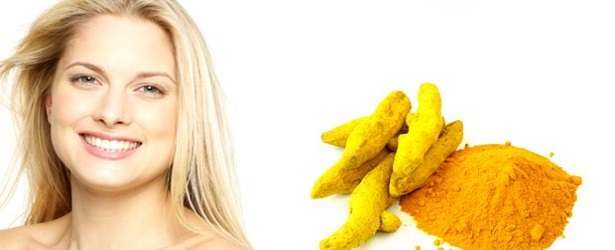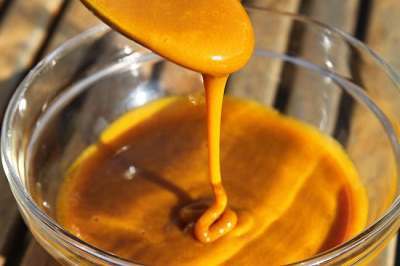Turmeric and Your Health
Do you want to reduce inflammation and up your antioxidant intake, maybe get relief from arthritis or help yourself think better, even defend against Alzheimer’s and other cognitive difficulties associated with aging? Experts say you can with a daily dose of turmeric.
Turmeric? Yes, it’s an herb well-worth using. A plant from the ginger family, its underground stems are boiled and ground, and the resulting powder used as a spice or for supplements. It’s the stuff that makes curry yellow, sometimes called Indian saffron, and is used in many Asian and African cuisines.
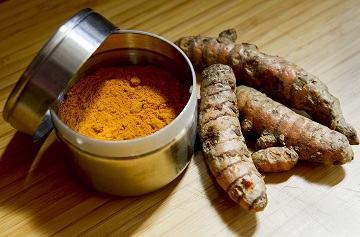 Turmeric has a track record that goes back more than 4000 years in Ayurvedic medicine. It provides any number of health benefits and is considered to be a cleanser in the body. It has a proven antibacterial quality and is used to treat wounds, and it can help alleviate circulatory, menstrual, and digestive troubles. For example, added to dishes with beans, turmeric helps with bloating and gas. It’s also used to treat swelling, asthma, and allergies, and recently it has been shown to be effective in healing peptic ulcers. In India turmeric is eaten daily by most of the population, and the risk for Alzheimer’s is 25 percent lower than in the United States. Cell death and inflammation are thought to be involved in Alzheimer’s and studies indicate that turmeric is beneficial in stopping both of these.
Turmeric has a track record that goes back more than 4000 years in Ayurvedic medicine. It provides any number of health benefits and is considered to be a cleanser in the body. It has a proven antibacterial quality and is used to treat wounds, and it can help alleviate circulatory, menstrual, and digestive troubles. For example, added to dishes with beans, turmeric helps with bloating and gas. It’s also used to treat swelling, asthma, and allergies, and recently it has been shown to be effective in healing peptic ulcers. In India turmeric is eaten daily by most of the population, and the risk for Alzheimer’s is 25 percent lower than in the United States. Cell death and inflammation are thought to be involved in Alzheimer’s and studies indicate that turmeric is beneficial in stopping both of these.
A recent study found that one dose of turmeric helped elderly people improve attention and memory, and taken over a few weeks it helped improve mood by reducing stress. Study participants reported feeling more contented. Turmeric is thought to strengthen the transmission of electrical signals in the brain.
Turmeric’s antioxidant properties may also be of benefit in fighting cancer. Our cells are constantly assaulted by free radicals, and as we age cell damage can cause DNA to split imperfectly, which can lead to a variety of health concerns, even cancer. Curcumin, the active ingredient in turmeric, works like other antioxidants in that it is thought to fight free radicals. Curcumin has also been shown to destroy cancer cells.
Turmeric is generally considered safe when it’s used as a spice and in home remedies, and it has no known drug interactions. Although be aware that problems can occur if people ingest large quantities of the herb.
 Turmeric does help with a large number of conditions, but it’s not indicated for people who already suffer from certain health concerns. As an example, turmeric is a blood thinner, so while it helps prevent against strokes and heart attacks, it’s not recommended for people with blood clotting problems or with low blood pressure. You need to work with your doctor to manage these conditions.
Turmeric does help with a large number of conditions, but it’s not indicated for people who already suffer from certain health concerns. As an example, turmeric is a blood thinner, so while it helps prevent against strokes and heart attacks, it’s not recommended for people with blood clotting problems or with low blood pressure. You need to work with your doctor to manage these conditions.
Turmeric is also not recommended for people with heart disease, jaundice, or certain gallstone problems. So anyone with these or related conditions is advised to talk to their doctor before considering supplementation.
As with all herbal remedies, pregnant women should not use turmeric supplements without discussing it with their doctor first.

 Subscribe Now
Subscribe Now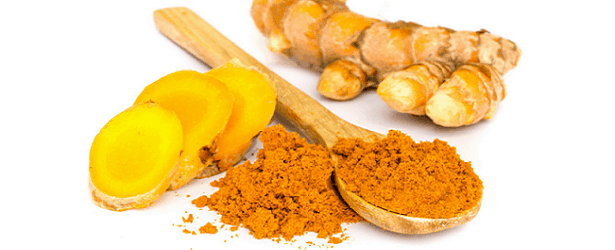

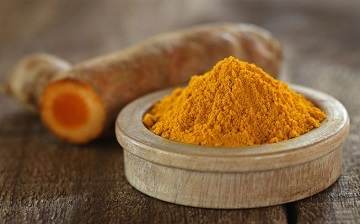 You might know turmeric from seeing a bottle in the spice rack at your local grocery. The darkly rich golden powder comes from the root of the plant. The root is boiled and dried, and the powder processed to be sold as a spice or to make turmeric supplements. It’s also an ingredient in other natural remedies. For example, it’s sometimes used in burn ointment and sunscreen products. It’s also used as a dye in products like cheese and mustard. When used as a spice, turmeric doesn’t add a strong or distinctive taste to food, but rather adds a somewhat bitter and astringent flavor. It’s what gives curries their yellow color, and in fact is sometimes called Indian saffron and used as a replacement for saffron because it’s much less expensive.
You might know turmeric from seeing a bottle in the spice rack at your local grocery. The darkly rich golden powder comes from the root of the plant. The root is boiled and dried, and the powder processed to be sold as a spice or to make turmeric supplements. It’s also an ingredient in other natural remedies. For example, it’s sometimes used in burn ointment and sunscreen products. It’s also used as a dye in products like cheese and mustard. When used as a spice, turmeric doesn’t add a strong or distinctive taste to food, but rather adds a somewhat bitter and astringent flavor. It’s what gives curries their yellow color, and in fact is sometimes called Indian saffron and used as a replacement for saffron because it’s much less expensive. In India turmeric is a go-to herb for a variety of health concerns. A common use is for muscle and ligament pain and swelling. For example, people add a teaspoon to warm mild before bed, or mix it with other herbs to create an ointment that’s spread on the painful area and then covered with a bandage. It’s an effective treatment for regulating menstruation, reducing painful arthritic joints, and helping improve digestion. It’s even used as a beauty aid with a paste applied to the skin. Reports are that turmeric makes skin glow. There might be something to this because cosmetic companies are studying applications for turmeric in beauty products. If you want to add turmeric to your diet, an amount of around a teaspoon a day will give you benefits. Or you can take a supplement and follow the directions on the bottle.
In India turmeric is a go-to herb for a variety of health concerns. A common use is for muscle and ligament pain and swelling. For example, people add a teaspoon to warm mild before bed, or mix it with other herbs to create an ointment that’s spread on the painful area and then covered with a bandage. It’s an effective treatment for regulating menstruation, reducing painful arthritic joints, and helping improve digestion. It’s even used as a beauty aid with a paste applied to the skin. Reports are that turmeric makes skin glow. There might be something to this because cosmetic companies are studying applications for turmeric in beauty products. If you want to add turmeric to your diet, an amount of around a teaspoon a day will give you benefits. Or you can take a supplement and follow the directions on the bottle.
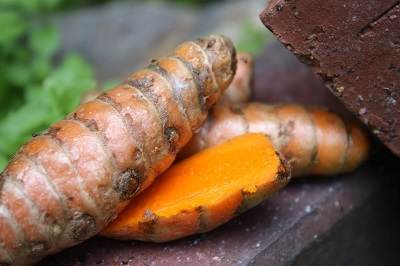 Turmeric is a spice that has made a great reputation for itself with its powerful properties. People swear by its effectiveness to heal conditions or diseases in their body and as time goes by, more and more people are getting on the Turmeric band wagon. I’m sure most people think that it is a spice used in cooking, but that is not all it is. Curcumin, the main property in Turmeric, has all these super qualities that are greatly beneficial to the overall health of your body. These qualities leave no system out in the human anatomy. They treat or even cure diseases that have been known to be resilient and if you make a habit of consuming Turmeric, you shall feel and notice the difference in your body.
Turmeric is a spice that has made a great reputation for itself with its powerful properties. People swear by its effectiveness to heal conditions or diseases in their body and as time goes by, more and more people are getting on the Turmeric band wagon. I’m sure most people think that it is a spice used in cooking, but that is not all it is. Curcumin, the main property in Turmeric, has all these super qualities that are greatly beneficial to the overall health of your body. These qualities leave no system out in the human anatomy. They treat or even cure diseases that have been known to be resilient and if you make a habit of consuming Turmeric, you shall feel and notice the difference in your body. Turmeric is great for the brain, as it is for other parts of the body. It puts a stop to developing plaque that is responsible for the development of Alzheimer’s, a disease that slowly deteriorates normal brain function. A frequent consumption of Turmeric can also increase mental focus and clarity. It resumes good circulation from the brain to the heart and vice versa.
Turmeric is great for the brain, as it is for other parts of the body. It puts a stop to developing plaque that is responsible for the development of Alzheimer’s, a disease that slowly deteriorates normal brain function. A frequent consumption of Turmeric can also increase mental focus and clarity. It resumes good circulation from the brain to the heart and vice versa.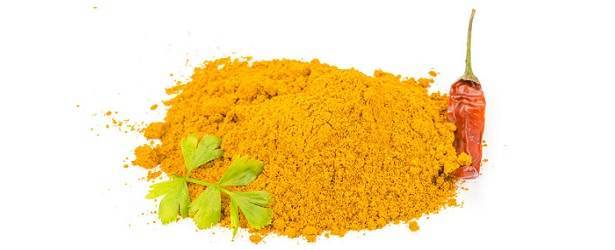
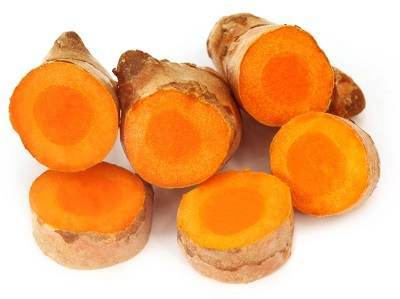 Turmeric’s wonderful qualities have really been spreading all over the world and while it was just a thing for the East, the West has started to embrace this herb and its uses as well. Here are some facts about Turmeric:
Turmeric’s wonderful qualities have really been spreading all over the world and while it was just a thing for the East, the West has started to embrace this herb and its uses as well. Here are some facts about Turmeric: Turmeric can help with lowering cholesterol level.
Turmeric can help with lowering cholesterol level.

 The perfect component is black pepper. It stimulates the tissues and offers easier absorption for the Turmeric. If you can mix it with Turmeric and take at least half a teaspoon of it three times a day, You can’t however, consume this mixture without some liquid. You can add it to soup, or bring water to a boil and mix thoroughly; always make sure that the water is boiling hot, so that the ingredients dissolve properly into the water. This way, you will have your daily intake taken care of. Just make sure that both ingredients are Organic and that there are no additives of preservatives added.
The perfect component is black pepper. It stimulates the tissues and offers easier absorption for the Turmeric. If you can mix it with Turmeric and take at least half a teaspoon of it three times a day, You can’t however, consume this mixture without some liquid. You can add it to soup, or bring water to a boil and mix thoroughly; always make sure that the water is boiling hot, so that the ingredients dissolve properly into the water. This way, you will have your daily intake taken care of. Just make sure that both ingredients are Organic and that there are no additives of preservatives added.
 One of the properties in
One of the properties in  Curcumin is the powerful compound found in Turmeric that drives away inflammatory diseases like:-
Curcumin is the powerful compound found in Turmeric that drives away inflammatory diseases like:-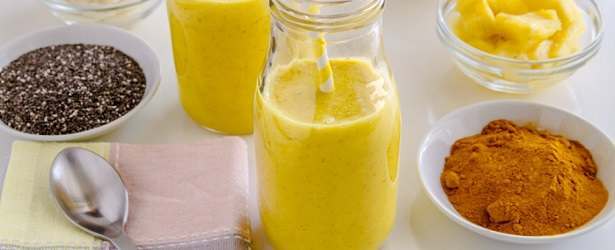
 Where Did Turmeric Come From?
Where Did Turmeric Come From?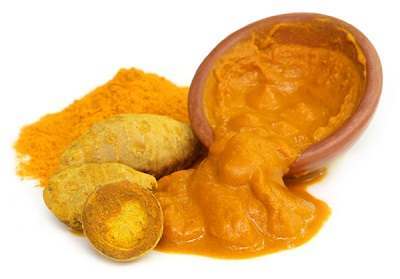 How to Use Turmeric as Medicine?
How to Use Turmeric as Medicine?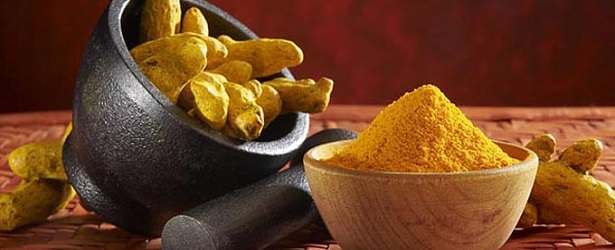
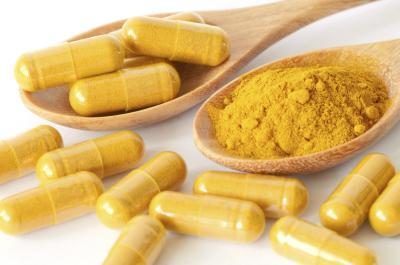 Using Turmeric Supplements
Using Turmeric Supplements Aside from its digestive health benefits, turmeric is also very useful to maintain or improve your liver’s health. This herb contains protective compounds that help the liver to eliminate toxins from the body easily. Furthermore, turmeric can also aid in treating people with hepatitis,
Aside from its digestive health benefits, turmeric is also very useful to maintain or improve your liver’s health. This herb contains protective compounds that help the liver to eliminate toxins from the body easily. Furthermore, turmeric can also aid in treating people with hepatitis, 
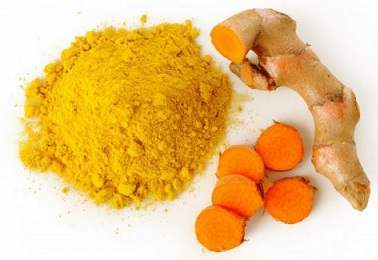 What Is Turmeric
What Is Turmeric Turmeric is abundant with a compound that is known as curcumin. The latter has an anti-inflammatory property, which is basically the reason why it provides effective relief against arthritis. This compound reacts with the protein that trigger arthritic pain. It also helps in the inhibition of prostaglandins and cyclooxygenase, which are the ones leading into inflammation. In addition, this compound is also known for lowering the level of histamine and stimulating hormones leading to a painful sensation.
Turmeric is abundant with a compound that is known as curcumin. The latter has an anti-inflammatory property, which is basically the reason why it provides effective relief against arthritis. This compound reacts with the protein that trigger arthritic pain. It also helps in the inhibition of prostaglandins and cyclooxygenase, which are the ones leading into inflammation. In addition, this compound is also known for lowering the level of histamine and stimulating hormones leading to a painful sensation.